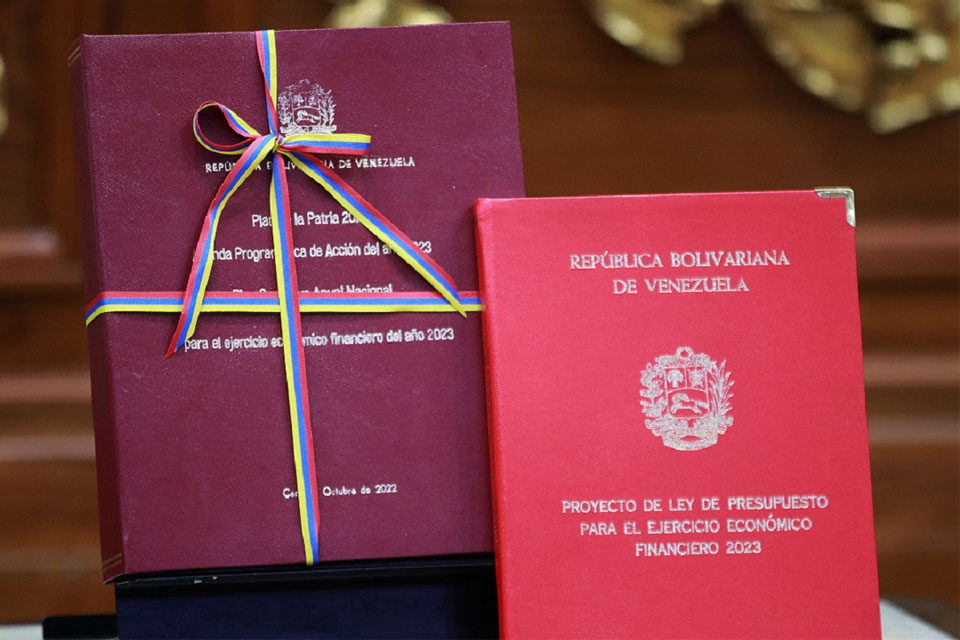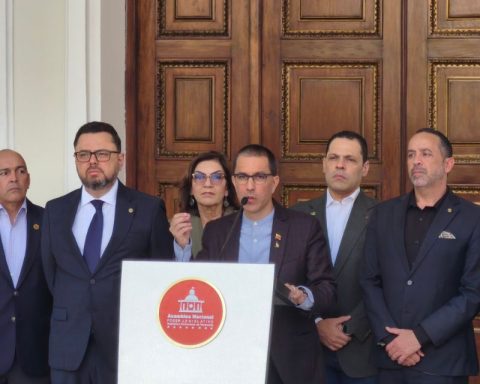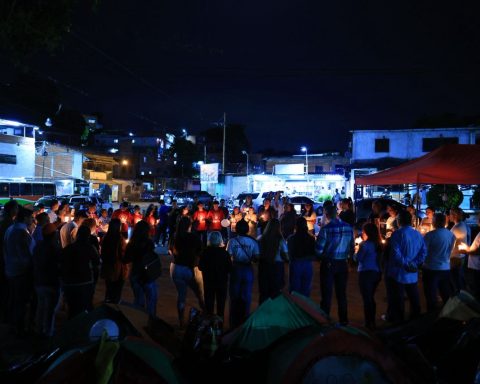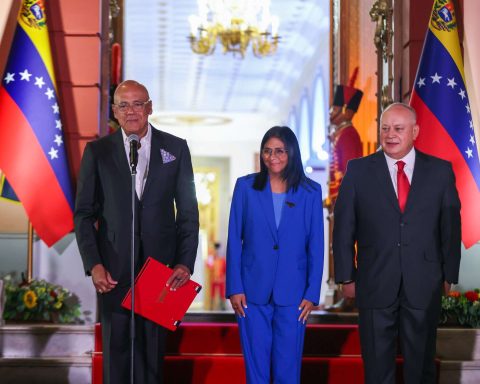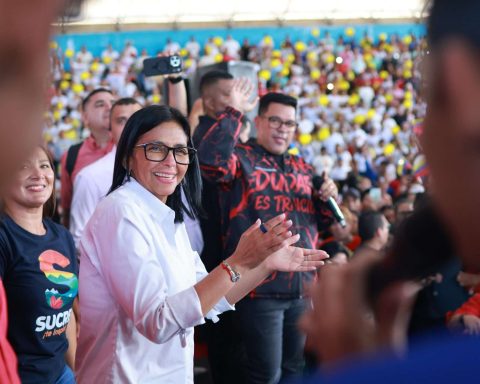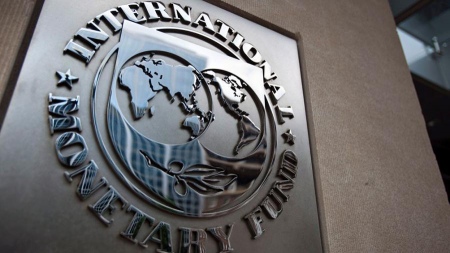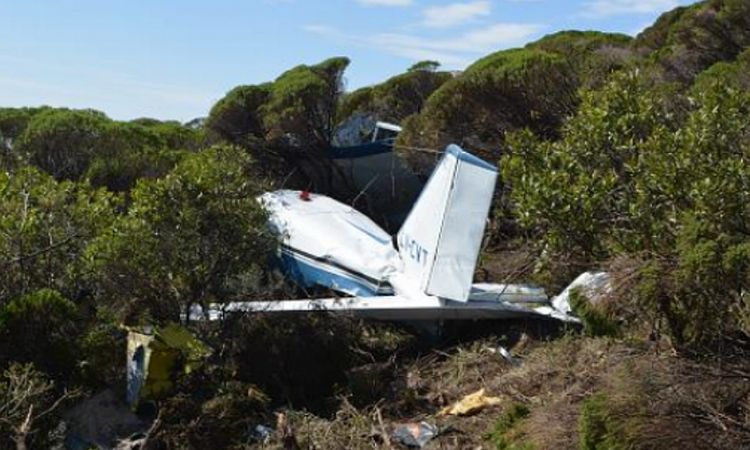Around $14,602 million dollars would be managed by the State for the course of 2023, with priority allocations for the ministries of Education, Interior Relations, Economy, Health, Labor, Defense, University Education and Electric Power. TalCual had exclusive access to both the Budget Law project and the Special Debt Law
Two months late, this Friday, December 2, the Chavismo National Assembly introduced for discussion the Budget Bill for the Financial Economic Year corresponding to 2023, under a veil of opacity and without complying with the corresponding protocols, in which a budget of 170,703 million bolivars is estimated.
In this way, the national budget that Chavismo currently manages – must still be submitted for approval by the Legislative Power – is equivalent to some $14,602 million, when converting according to the exchange rate published by the Central Bank of Venezuela (BCV) in force. for this December 2 (Bs 11.69).
Already on October 14, the Minister of Planning, Ricardo Menéndez, had consigned to the AN both the National Budget Law, as well as the Annual Operation and the Debt Law corresponding to 2023, but without reporting any amount.
Weeks after Menéndez delivered the document prepared by the Executive Branch, the law has not begun to be discussed despite the fact that it requires the participation of each ministry in plenary, in order to determine the amount that each entity will receive. Considering that the project must be approved during December and that there are 33 ministerial portfolios, it seems unlikely that they will reach the sessions to give the green light in compliance with the protocol.
budget distribution
In the document, obtained exclusively by SuchWhich, the amounts of budget credits dedicated to each Organ of the Republic are agreed upon. The following list shows the allocations from highest to lowest:
- Ministry of Education: Bs 31,744,482,066 (18.6%)
- Ministry of Interior Relations, Justice and Peace: Bs 22,822,185,205 (13.37%)
- Ministry of Economy, Finance and Foreign Trade: Bs 16,991,410,214 (9.95%)
- Ministry of Health: Bs 12,704,122,469 (7.44%)
- Ministry of Social Work Process: Bs 11,405,699,920 (6.68%)
- Ministry of Defense: Bs 10,941,524,051 (6.41%)
- Ministry of University Education: Bs 9,791,668,657 (5.74%)
- Ministry of Electric Power: Bs 8,377,315,495 (4.91%)
- Ministry of Industries and National Production: Bs 4,960,011,846 (2.91%)
- Ministry of Water Care: Bs 4,172,135,398 (2.44%)
- Ministry of Transportation: Bs 4,103,612,558 (2.4%)
- Federal Government Council: Bs 2,978,115,440 (1.74%)
- Ministry for Food: Bs 2,310,037,408 (1.35%)
- Ministry of Public Works: Bs 2,256,538,523 (1.32%)
- Supreme Court of Justice: Bs 2,164,085,678 (1.27%)
- Vice Presidency of the Republic: Bs 1,868,931,976 (1.09%)
- Ministry of Productive Agriculture and Land: Bs 1,644,402,661 (0.96%)
- Ministry of the Office of the Presidency and Monitoring of Government Management: Bs 1,589,903,572 (0.93%)
- Ministry of the Penitentiary Service: Bs 1,497,567,264 (0.88%)
- Ministry of Science and Technology: Bs 1,264,705,109 (0.74%)
- Ministry of Communication and Information: Bs 996,487,139 (0.58%)
- Ministry of Ecosocialism: Bs 969,708,020 (0.57%)
- Ministry of Planning: Bs 965,643,965 (0.57%)
- Ministry for Communes and Social Movements: Bs 918,229,729 (0.54%)
- Rectifications: Bs 829,292,653 (0.49%)
- Ministry of Ecological Mining Development: Bs 694,941,621 (0.41%)
- Ministry of Habitat and Housing: Bs 694,074,323 (0.41%)
- Ministry of Culture: Bs 674,197,804 (0.39%)
- Ministry of Youth and Sports: Bs 629,701,867 (0.37%)
- Ministry of Fisheries and Aquaculture: Bs 627,430,650 (0.37%)
- Ministry of Petroleum: Bs 606,434,718 (0.36%)
- Ministry of National Commerce: Bs 588,882,573 (0.34%)
- Ministry of Tourism: Bs 577,447,994 (0.34%)
- Ministry of Urban Agriculture: Bs 565,556,100 (0.33%)
- Ministry of Women and Gender Equality: Bs 524,983,864 (0.31%)
- Ministry for Indigenous Peoples: Bs 510,162,742 (0.3%)
- Public Ministry: Bs 397,525,419 (0.23%)
- Ministry for Foreign Relations: Bs 337,112,008 (0.2%)
- Republic Attorney General’s Office: Bs 284,974,345 (0.17%)
- National Electoral Council: Bs 267,521,850 (0.16%)
- Public Defense: Bs 265,416,157 (0.16%)
- Sectoral Vice Presidency of Economy: Bs 221,303,612 (0.13%)
- National Assembly: Bs 203,107,367 (0.12%)
- Sectoral Vice Presidency of Social and Territorial Socialism: Bs 200,133,282 (0.12%)
- Planning Sectoral Vice Presidency: Bs 187,415,471 (0.11%)
- Sectoral Vice Presidency of Political Sovereignty, Security and Peace: Bs 187,415,471 (0.11%)
- Sectoral Vice Presidency of Public Works and Services: Bs 187,415,471 (0.11%)
- Sectoral Vice Presidency of Communication and Culture: Bs 187,415,471 (0.11%)
- Sectoral Vice Presidency for Citizen Security and Peace: Bs 187,415,471 (0.11%)
- Sectorial Vice Presidency of Science, Technology, Education and Health: Bs 187,415,471 (0.11%)
- Comptroller General of the Republic: Bs 175,291,872 (0.1%)
- National Superintendency of Internal Audit: Bs 97,853,282 (0.06%)
- Republican Moral Council: Bs 95,261,415 (0.06%)
- Ombudsman’s Office: Bs 72,207,344 (0.04%)
As can be seen, the highest amounts were assigned to the portfolios of Education, Internal Relations, Economy, Health, Labor, Defense, University Education and Electric Power.
The lack of transparency has been a hallmark during the government of Nicolás Maduro, especially when it comes to national budgets, since the last time he openly published the approved law was in 2015 for the 2016 financial year. For six years, the Venezuelans are unaware of the amount of money handled by State institutions, so it is impossible to control how it is handled, except for the data that some NGOs appear who manage to access the amounts approved, behind closed doors, by the entities administered by Chavismo.
*Read also: Venezuelan budget is the fourth least transparent in the world, according to a survey
They bet on debt
At the same time, the amount contemplated in the Special Annual Indebtedness Bill for 2023, delivered by Menéndez in October, was known. The document specifies an amount of Bs 40,047 million for the contracting of projects executed by public organizations, equivalent to about $3,425 million.
It also stipulates Bs 14,220 million ($1,216 million) to finance projects, without specifying who executes them; another Bs 6,660 million ($569 million) dedicated to financing the External and Internal Public Debt; an amount of Bs 10,779 million ($922 million) usable for the refinancing of the National Public Debt; and another Bs 300,000 ($25,662) for the “transitory resource needs of the Treasury.”
According to the explanatory statement of the project, the Government will seek to “strengthen the role of public credit” to recover the national economy through public financing.
«The profound changes produced in the functioning of the economy point to overcoming the rentier bias, at the same time that they open up possibilities so that, in future financial years, public financing plays a more leading role to consolidate the economic growth necessary for the national development,” they explain.
The specific amounts for the maximum indebtedness of each ministerial portfolio are the following:
- Ministry for Electric Power: Bs 13,858,600,000
- Ministry of Economy, Finance and Foreign Trade: Bs 6,080,000,000
- Ministry of Transportation: Bs 5,941,300,000
- Ministry of Industries and National Production: Bs 4,180,000,000
- Vice Presidency of the Republic: Bs 3,325,000,000
- Ministry of Public Works: Bs 2,299,000,000
- Ministry of Planning: Bs 2,121,350,000
- Ministry for Defense: Bs 741,950,000
- Ministry of Water Attention: Bs 645.069.000
- Ministry of Urban Agriculture: Bs 285,000,000
- Ministry of Interior Relations, Justice and Peace: Bs 22,515,000
Post Views: 367
